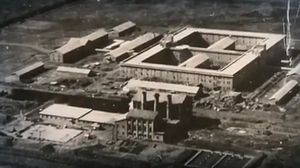Every August 15 — the memorial day marking the end of World War II in Japanese terms, or Japan’s surrender in the War of Aggression Against China in Chinese terms — is a sensitive day for China and Japan (as well as Korea). It has almost become routine that on the day Japan’s prime minister gives an ambiguous speech and China’s foreign ministry protests and urges Japan to reflect upon the history. However, this year, Japan’s only public broadcaster NHK’s independent voice won unanimous acclaim — both from the state and the public — in China.
On August 13, as the 72th anniversary was approaching, NHK broadcasted a special documentary titled The Truth of Unit 731, revealing the military crimes committed by Unit 731, a covert biological and chemical warfare research and development unit of the Imperial Japanese Army during WWII. In China, Unit 731 has been so notorious that even kids in kindergarten have heard about it. NHK uncovered large amount of evidence and recording of confession from various achieves, including Russian achieve, in the documentary.
The documentary immediately caught Chinese audience’ attention and was widely discussed in China’s social media spheres. Later, even China’s national media — People’s Daily, Global Times, Xinhua, and CCTV (China Central Television) — reported about the documentary.
On August 15, when asked about China’s opinion on the documentary, China’s Foreign Ministry spokesperson Hua Chunying replied at the regular press conference: “We appreciate the courage of those insightful Japanese people to reveal the historical truth.”
Of course, Hua didn’t forget to criticize the Japanese government and uphold China’s position on World War II:
During World War II, the invading Japanese troops waged a heinous bacterial war against the Chinese people, conducted cruel and inhuman living-body experiments and committed monstrous crimes. The relevant evidence is ironclad and undeniable. Only by correctly recognizing that period of history can Japan unload the historical burden…[We] hope the Japanese side can carefully listen to the call for justice at home and abroad, correctly understand and deeply reflect upon the history of aggression by the Japanese militarism, and earnestly respect the feelings of the Chinese people and people of other victimized Asian countries.
Compared to the Chinese government, the Chinese people are apparently more willing to praise the NHK and — at the same time — conduct some self-criticism.
On Weibo, hundreds of Chinese netizens praised NHK’s courage and objectivity and called NHK as “station of conscience” for releasing such a documentary at such a sensitive time. Many pointed out that it is particularly worth praise since NHK, despite being Japan’s national station, keeps fighting for its independent voice. Chinese netizens also suggested China’s national media learn from NHK to make more independent programs
While the national media (as mentioned above) used the NHK’s documentary as evidence to echo the Chinese government’s remarks like “Japan should deeply reflect upon the history,” some netizens also commented that every country should reflect upon history.

































